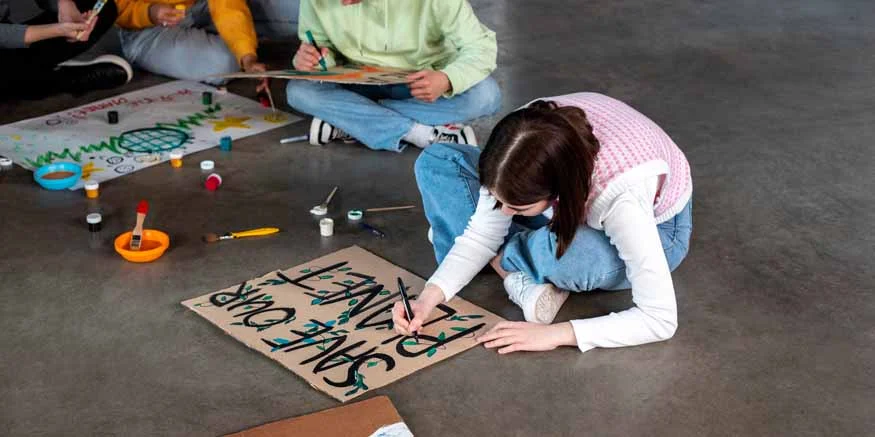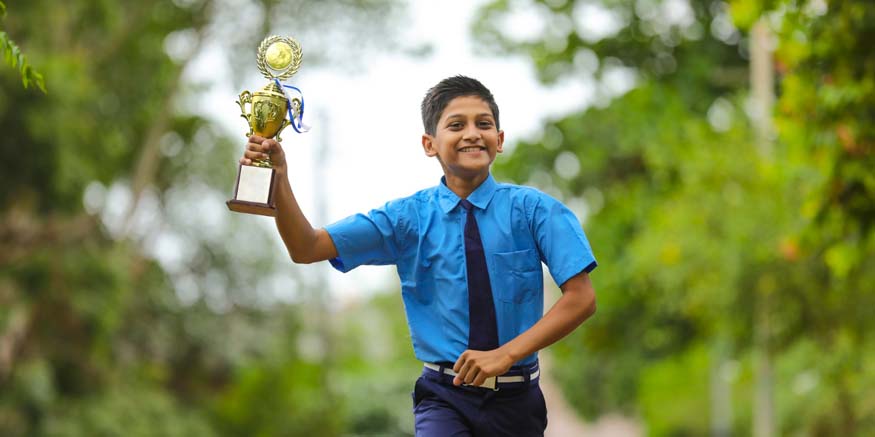Imagine if you could say,
“I got 99 problems but teaching my kid problem-solving skills definitely ain’t one!”
It sure sounds like a mouthful, but the impact it makes is just like an awesome sixer in cricket – it goes right out of the stadium!
Now the thing is teaching your child problem-solving skills can seem like a problem in itself but it does not have to be. And if you need a starting point, you know you have landed on the best page you could. We are all set to tell you the A to Z of problem solving for kids. So let us go!
Problem solving for kids: the what and why of it
Problem-solving, as you know, is all about finding your way out of a sticky situation. Something your kids must know because problems start young too. That said, for kids to know how to solve problems is vital, and that is because:
- It is the key to critical thinking. And the gateway to logic. When kids imbibe these traits, they will get the ability to solve even the biggest of problems like a puzzle.
- Know where the roots of resilience lie? In problem solving. Think of it as a handy toolkit they can use to both face and fix any setbacks that come their way.
- Believe it or not but problem-solving can teach the kids the art of creativity, if that makes sense. You see getting one’s self out of scrapes requires some practical imagination – a skill kids need.
- A benefit that is bound to make you, dear parent, happy is that problem-solving can actually help kids get good grades because well, what are exams if not problems meant to be solved. With reasoning and logic.
- Finally, learning how to solve problems (successfully, if we might add) can make a kid’s confidence soar. In a good way of course. Without forgetting caution.
Also read: How to Improve Problem Solving Skills in a Student?
Solving problems: how to teach kids this art
One of the best ways is to implement problem-solving activities for students. Or your kids. But that is just one of the ways. There are more to get your kids on the path of problem-solving. And they are:
Inspire a growth mindset
Kids need to know that patience and persistence are key. Not just to problem-solving, but also to growing and getting better in life. Teach kids that this is the true way to intelligence.
Give them examples
Ah, the good old problem solving skills examples for students trick! It always works like a charm. You know what they say: when you lead by example, you reinforce the lessons of life! Telling kids about your failures and success stories and guiding them through their problems is sure to work.
Ask them riddle-like questions
Or open-ended ones. Think of them as problem solving activities for students. When you ask them to solve a problem-based question, you will end up activating their critical thinking skills, making them come up with various solutions to get to the right one.
Teach them how to solve a problem
As an adult, you know that problem-solving is not without its steps. Those steps are so ingrained in you now that you do not even think about them! But that is not the case for kids. They need these steps:
- Step one: Find out what the problem is
- Step two: Come up with ways to fix it
- Step three: Evaluate said ways
- Step four: :Pick one of the ways
- Step five: Try it out
- Step five: Ponder over it and see what worked, what did not
Also read: What is the Importance of Problem-Solving Skills for Kids?
Turn problem solving into a game
Now this is the type of problem solving activities for students they are sure to love! Especially if you throw in a reward for every problem successfully solved, and recognition for the ones not so successfully solved.
Examples of games, you ask? Well, you could try your luck with board games like chess, or puzzles like Sudoku. Even Minecraft works!
Try out problem-solving stories
Also called hero stories. You see, all hero-based stories have a problem at their core, which the hero must overcome to become, well, a hero. You can discuss these stories with kids, analysing the hero’s actions and how he heroically solved his problems.
Give kids autonomy
The autonomy to solve their own problems. By themselves. All on their own! At least the simple problems. Letting kids independently solve their issues is sure to give them a major confidence boost.
Also read: Famous Problems in Mathematics and Their Solutions
Take a collaborative approach
Chances are some of the problems might be a bit too much for little ones to solve on their own. For such ones, it is best for you to work together with kids so you can carefully guide them to the right path. Also, teach kids to work with other kids as a team to resolve issues and fix messes.
Tell them failure is A-OK
Failure is a part of life but kids can take it pretty hard. Especially if it is their first encounter with the Big F. But that is the thing, you have got to tell them that failure is not a big issue at all and just a natural thing. Something to brush aside and carry forward from.
Show your support
And be patient. It can take a while for kids to master the art of fixing issues. And that is okay because each kid has their own pace and way of learning things.
We believe that problem solving for kids is something that should be taught both at home and in school. Just like we do at EuroSchool, where we set age appropriate problem solving skills examples for students so they can hone their skills faster and learn better. Visit us to know more!









